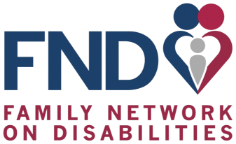INformation Hub
Supporting Service Provision during the COVID-19 Pandemic
Supporting Service Provision during the COVID-19 Pandemic
(May 11, 2020) | Useful to Parent Centers and other community-based organizations providing direct services remotely during COVID-19 pandemic
Children, youth, and families living in under-resourced communities nationwide are especially vulnerable to the immediate and long-term impact of the COVID-19 pandemic, and may need different and/or more robust provision of services. At the same time, community-based direct service providers may struggle to know how best to support families while adhering to social distancing mandates.
This tip sheet comes from Child Trends and is based on promising practices implemented by South Ward Promise Neighborhood Partner agencies. It offers strategies to help administrators and supervisors support front-line staff who work with clients remotely, specifically regarding three key areas where administrators are likely to experience the greatest challenges: logistics, policies and procedures, and communication.
Access the tip sheet at:
https://www.childtrends.org/publications/strategies-to-support-the-administration-of-direct-service-provision-during-the-covid-19-pandemic
A PDF version of the 4-page tip sheet is available for download at:
https://www.childtrends.org/wp-content/uploads/2020/05/SouthWardCOVIDTipSheetAdmin_ChildTrends_May2020.pdf
More About the Strategies Discussed
Let us offer a bit more detail about the three key areas of challenge identified in this resource.
Logistics | Logistics focus on assessment, coordination, and management of the resources needed to ensure that staff can work with families in a smooth, timely, cost-effective, and reliable manner. Key organizational considerations include the use of technology and resource management, both of which are discussed in helpful specifics.
Policies and Procedures | Are your organization’s policies and procedures appropriate for remote working, and do they allow staff the flexibility to be effective at their jobs? Suggestions are given for adjusting workplace policies and expectations.
Communication | For agencies whose work primarily consists of face-to-face interactions, it may be challenging to continue working while being physically separated. Communication is the foundation of successful remote work. Partner administrators should communicate early and often with a variety of stakeholders important to their agencies, especially the staff, the organization’s funders, and its other partners.
SOURCE ARTICLE: Center for Parent Information and Resources
Give us a call at (727) 523-1130 or (800) 825-5736 or request a callback by clicking below.
311 South Missouri Ave, Clearwater, FL 33756
(727) 523-1130
(800) 825-5736

